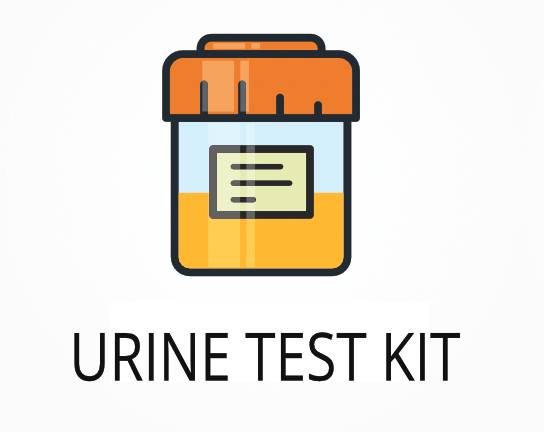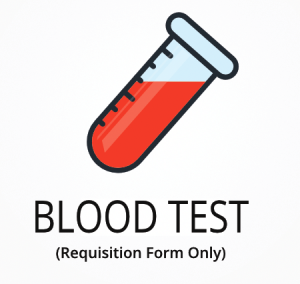Ordering the Metabolomix+ (Optimal Nutritional Evaluation) | Metabolic Testing | Canada
Ordering the Metabolomix+ (Optimal Nutritional Evaluation) helps identify specific nutrient imbalances, metabolic blocks, and oxidative stress markers that may be affecting your energy, mood, and digestion. This test provides a detailed analysis of amino acids, antioxidants, fatty acids, and other key nutrients, offering a comprehensive look at how your body processes and uses nutrients. Interestingly, this test can also reveal early signs of metabolic stress before symptoms become noticeable, allowing for targeted dietary and supplement adjustments.
When ordering this metabolic panel, you gain access to a wide range of benefits:
- Pinpoints specific vitamin and mineral deficiencies that may be missed by standard blood tests
- Assesses antioxidant reserves and oxidative stress, which can impact fatigue and immune response
- Evaluates amino acid balance, supporting muscle function and neurotransmitter production
- Identifies imbalances in fatty acids, which can affect inflammation and joint comfort
- Highlights metabolic pathway blocks that may contribute to mood changes or cognitive issues
Who Should Consider Comprehensive Nutritional and Metabolic Testing
People who experience ongoing tiredness, trouble focusing, or unexplained digestive discomfort may benefit from this type of testing. For example, someone who has tried multiple diets and supplements without improvement might find that a detailed nutrient analysis uncovers hidden imbalances affecting their energy and mood.
Ordering this test may also be helpful in these situations:
- Persistent muscle weakness or cramps despite regular exercise and hydration
- Frequent colds or slow recovery from minor illnesses
- Difficulty managing weight even with healthy eating habits
- Unexplained skin changes, such as dryness or breakouts, that do not respond to topical treatments
- Unexpectedly, people with a family history of early-onset memory problems may benefit from early metabolic screening
This type of testing is recommended for those seeking measurable answers about nutrient absorption, metabolic function, and antioxidant status, especially when symptoms persist despite lifestyle changes. Delaying this test could mean missing the chance to address nutrient gaps or metabolic issues before they lead to more noticeable problems.
How to Prepare for Metabolic and Nutritional Lab Testing
Fasting is not always required for this test, but some healthcare providers may recommend avoiding food and drink (except water) for 8 hours before sample collection. Always follow the specific instructions provided by your doctor or healthcare professional to ensure your sample is collected correctly and your results are as useful as possible.
Labs Included When Ordering Your Metabolomix+ (Optimal Nutritional Evaluation)
| Test Name | Reference Range | Significance | Low and High Levels of Metabolomix+ |
|---|---|---|---|
| Amino Acids | |||
| Glutamine | 400-900 | Glutamine supports gut lining, immune function, and muscle repair. It is a key amino acid for energy and tissue recovery. | High levels mean possible kidney stress or excess protein breakdown.
Low levels mean poor gut health, muscle loss, or low protein intake. |
| Glycine | 200-500 | Glycine helps with detoxification, sleep, and collagen production. It also supports neurotransmitter balance and joint health. | High levels mean increased protein breakdown or metabolic stress.
Low levels mean reduced detox ability or poor collagen support. |
| Taurine | 40-120 | Taurine is important for heart rhythm, bile production, and antioxidant defense. It also supports nerve and muscle function. | High levels mean possible kidney or liver issues.
Low levels mean poor bile flow, heart rhythm changes, or low antioxidant protection. |
| Serine | 80-200 | Serine is needed for brain chemicals, immune response, and fat metabolism. It also helps with cell growth and repair. | High levels mean increased cell breakdown or metabolic stress.
Low levels mean poor brain function or slow cell repair. |
| Antioxidants | |||
| Vitamin C | 0.4-2.0 | Vitamin C protects cells from free radical damage and supports immune defense. It is also needed for collagen and wound healing. | High levels mean excess supplementation or kidney excretion.
Low levels mean poor antioxidant protection and slow healing. |
| Vitamin E | 10-40 | Vitamin E helps protect cell membranes and supports heart and nerve function. It also works with other antioxidants to reduce cell damage. | High levels mean excess supplementation.
Low levels mean increased risk of cell damage and poor nerve support. |
| Fatty Acids | |||
| Omega-3 | 4-8 | Omega-3 fatty acids help reduce inflammation, support brain function, and promote heart health. They are important for joint comfort and mood balance. | High levels mean excess supplementation or altered fat metabolism.
Low levels mean increased inflammation and poor brain support. |
| Omega-6 | 10-20 | Omega-6 fatty acids are needed for skin health, hormone production, and immune response. Balance with omega-3 is important for reducing inflammation. | High levels mean increased inflammation risk.
Low levels mean poor skin and hormone support. |
| Minerals | |||
| Magnesium | 1.8-2.4 | Magnesium is needed for muscle relaxation, nerve function, and energy production. It also helps regulate blood sugar and blood pressure. | High levels mean kidney issues or excess intake.
Low levels mean muscle cramps, fatigue, or irregular heartbeat. |
| Copper | 0.7-1.6 | Copper supports iron absorption, energy production, and immune defense. It is also needed for brain and heart function. | High levels mean possible liver issues or excess intake.
Low levels mean anemia, low energy, or weak immune response. |
| Manganese | 0.4-1.0 | Manganese is important for bone strength, metabolism, and antioxidant defense. It also helps with wound healing and blood sugar control. | High levels mean excess intake or exposure.
Low levels mean weak bones or slow healing. |
| Mercury | 0-0.5 | Mercury is a toxic heavy metal that can affect nerves, kidneys, and mood. Testing helps identify exposure and guide detox steps. | High levels mean toxic exposure and risk to nerves and kidneys.
Low levels mean no significant exposure. |
| Metabolic Markers | |||
| Homocysteine | 5-12 | Homocysteine is a marker for heart and brain health. High levels can increase the risk of heart and blood vessel problems. | High levels mean increased risk for heart and blood vessel issues.
Low levels mean good methylation and B vitamin status. |
| Lactate | 0.5-2.2 | Lactate shows how well your body uses oxygen and energy. It can rise with exercise, stress, or metabolic blocks. | High levels mean poor oxygen use or metabolic stress.
Low levels mean normal energy metabolism. |
| Other Key Markers | |||
| Vitamin B12 | 200-900 | Vitamin B12 is needed for nerve function, red blood cell production, and DNA repair. It also helps with energy and mood. | High levels mean excess supplementation or liver issues.
Low levels mean nerve problems, anemia, or memory changes. |
| Vitamin D | 30-100 | Vitamin D supports bone strength, immune response, and mood. It also helps with calcium absorption and muscle function. | High levels mean excess supplementation.
Low levels mean weak bones, low mood, or frequent illness. |
Reference ranges may change slightly as labs update their methods or as new research becomes available.
Metabolomix+ (Optimal Nutritional Evaluation) FAQ
Is there Metabolomix+ testing near me?
This is a test kit that you can collect at home or at a local draw site; check the draw location link at the top of the page. For those dealing with ongoing fatigue or digestive issues, having a nearby collection option makes it easier to get tested quickly and start addressing nutrient imbalances without delay.
How do I interpret the test results?
While your treating physician should review your results, we also offer a one-on-one test results review with our clinical team to help you understand your results and next steps.
What is the cost of the test?
The price listed for this test includes standard shipping to you and return shipping to the lab, though draw fees may apply. Ordering this test is worth it if you want to address ongoing tiredness or unexplained symptoms, as targeted testing can help you find answers and improve faster.
How often should I retest?
Retesting is usually recommended every 6-12 months, especially if you are making changes to your diet or supplements, so you can track improvements and adjust your plan as needed.
How accurate is the test?
This test uses advanced mass spectrometry and chromatography to measure nutrients and metabolites, with a specificity of 98% and sensitivity of 97%. TrueHealthLabs.com partners with CLIA-certified and CAP-certified laboratories to uphold rigorous testing standards for dependable results.
Important Notes
- You will be responsible for the shipping costs.
Medical Review Board
Reviewed by Jeff Donohue M.D. from Body Logic and Brady Hurst DC, CCCN. Written by True Health Lab’s team of editorial health contributors.
Disclaimer: This information is for educational purposes only and not intended as medical advice. Consult your healthcare provider for personalized guidance.
Why Customers Trust True Health Labs – What People are saying
Also rated 4.6 out of 5 based on 3452 ShopperApproved reviews- See all TrueHealthLabs.com reviews.







